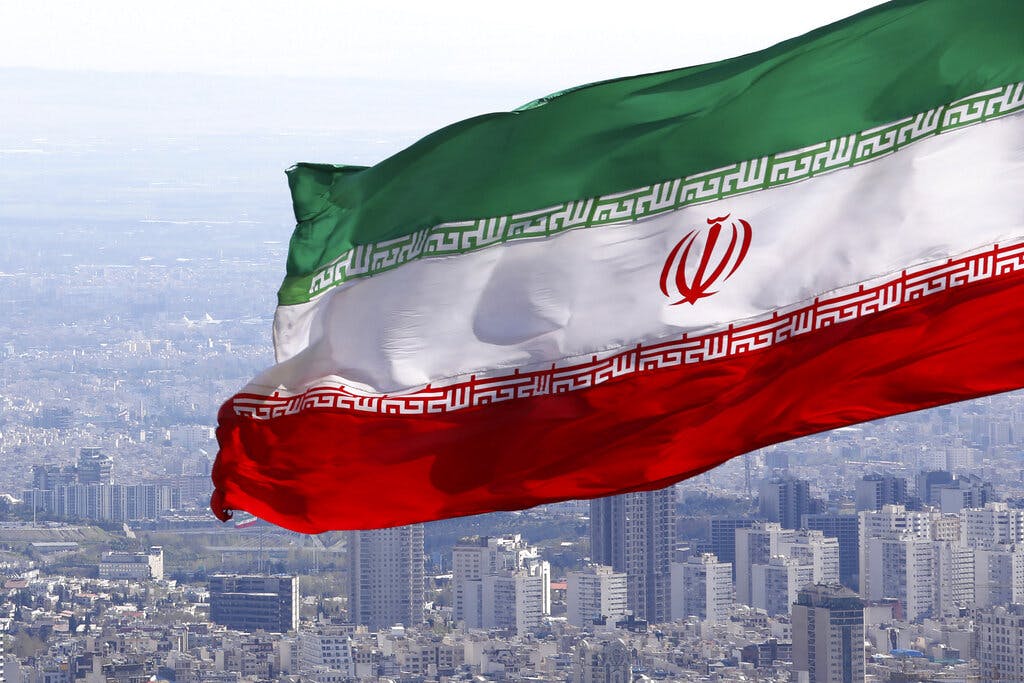Hottest Political Storm in Belgium Involves a Proposed Treaty of Appeasement for a Prisoner Swap With Iran
‘A devil’s pact’ is how the bargain is described.

Unlike America, when Belgium wants to strike an article of appeasement with Iran it signs a treaty and ratifies it in a legislative body — even if it involves merely a seemingly straightforward swap of Iranian-held hostages for a convicted terrorist.
At the center of Brussels’ hottest political storm is a top Iranian terror master in Europe, Assadollah Assadi. He was sent to the continent as a diplomat. In 2021, a Belgian court convicted Assadi on terrorism charges and sentenced him to 20 years in prison.
Now, however, the Belgian prime minister, Alexander De Croo, is promoting a deal that would set Assadi free. The foreign relations committee of the Belgian lower house approved the proposed treaty with a 10-5 vote and sent it to the entire body, where it had been scheduled to be approved yesterday. Yet the treaty faces growing opposition, so the vote was postponed until next week.
Assadi was convicted for his role in planning a 2018 attempted bombing near Paris, which, had it not been foiled, likely would have killed hundreds of people. The target, at a suburb of the French capital, was a gathering of an exiled Iranian anti-regime group, the National Council of Resistance of Iran.
The group’s annual gatherings draw politicians from around the world; one guest this year was Vice President Pence.
Belgium has exposed Assadi as the Islamic Republic’s chief terror agent on the continent, but Tehran has long honed a strategy designed to secure the safe return of such operators: Known as hostage diplomacy, the regime kidnaps foreign visitors, tries them on trumped-up charges, and then swaps them for its operators.
One such hostage is a Brussels university lecturer, Ahmadreza Djalali, who has dual Iranian-Swedish citizenship. A medical specialist, Mr. Djalali was arrested in 2016 while on a business trip to Iran. He was consequently sentenced to death on nonspecific espionage charges.
Separately, on the day that the parliamentary committee approved the prisoner swap in early July, Brussels disclosed that a Belgian aid worker, Olivier Vandecasteele, had been arrested in Iran five months ago. Mr. Vandecasteele has been held since then at the notorious Evin prison, where his health is deteriorating, a Belgian friend, Olivier Van Steirtegem, told the BBC.
Bringing home citizens in peril is a “moral duty,” as “people’s lives are at stake,” the Belgian justice minister, Vincent Van Quickenborne, said. Yet, as the growing parliamentary opposition demonstrates, the case is more complex than simply a lifesaving issue.
Following yesterday’s decision to postpone the treaty’s ratification, the New Flemish Alliance leader, Peter De Roover, said that “maybe there will finally be some realization that this is a devil’s pact.” Belgium’s “international credibility is not much, but if this is ratified, it will sink under the ground,” a legislator from the Flemish party Vlaams Belang, Ellen Samyn, added.
Members of the Albania-based NCRI, whose Paris gathering was the main target of the foiled plot for which Assadi was convicted, have demonstrated in front of the Brussels parliament for weeks.
“Tehran’s mullahs have been watching closely for the past four decades, banking on the West’s illogical insistence on appeasement” and are “taking Western nationals hostage to swap for its convicted terrorists,” the NCRI’s Shahin Gobadi writes. He is urging Belgium to end the “cycle of appeasement and terrorism.”
Unlike the Belgian government, President Obama’s 2015 nuclear deal with Iran was never brought to the Senate for ratification as a treaty. Instead, Washington took the Joint Comprehensive Plan of Action to the United Nations, where the Security Council approved the pact’s provisions. UNSC Resolution 2231 makes clear that under the UN Charter, all members are obliged to “accept and carry out” the writ.
Just like America, the Iranian parliament, the majlis, never ratified the JCPOA. Nor is it expected to ratify the Belgian so-called treaty: “What’s good for the Tehran regime does not really require a majlis approval,” an Israeli-based Farsi broadcaster, Menashe Amir, tells the Sun. “In Iran there is no law, only national interests.”
Unlike the current, unending diplomatic negotiations over the JCPOA revival, which the Iranian regime hopes will lead to a vast field of American concession, hostage diplomacy is designed to achieve a very narrow objective. “They kidnap foreigners to release their own,” Mr. Amir says. “Once a swap is made, all of Iran’s phony charges disappear.”
Since 1979, when 66 Americans were taken hostage and held at the U.S. Embassy for 444 days while Iran demanded the Shah’s extradition, Tehran has arrested dozens of foreigners, using them as bargaining chips for various dealings.
Diplomatic treaties — or, worse, agreements with a handshake that are backed by a UN piece of paper — will not end that behavior. It will encourage the Iranians to double down on their mob-like tactic.

